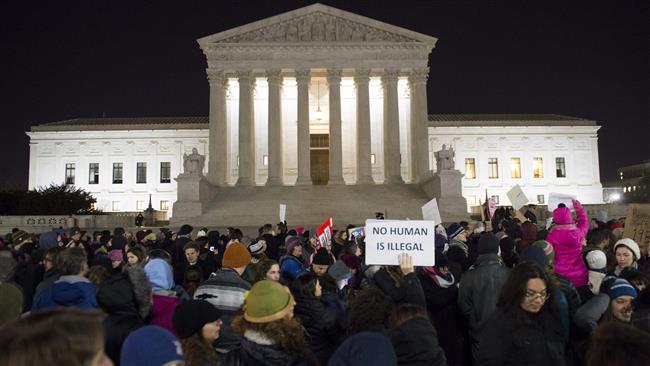
RNA - The new ruling means the Trump administration can fully enforce its entrance restrictions on most citizens of Iran, Libya, Syria, Yemen, Somalia, Chad and North Korea, along with some groups of people from Venezuela.
The Supreme Court’s orders effectively overturned a compromise in place since June, when the court said travelers with "bona fide" connections to the United States could continue to travel here notwithstanding restrictions in earlier version of the ban.
Now, those relationships will no longer provide a blanket exemption from the ban, although visa officials can make exceptions on a case-by-case basis.
The justices offered no explanation for their order, but the administration had said that blocking the full ban was causing "irreparable harm" because the policy is based on legitimate national security and foreign policy concerns.
Trump has said the restrictions are needed to tighten security and prevent terrorist attacks. Opponents say the ban violates the US Constitution because it discriminates against Muslims and certain nationalities.
During the 2016 presidential race, Trump campaigned for "a total and complete shutdown" of Muslims entering the United States on the pretext of preventing terrorist attacks.
847/940